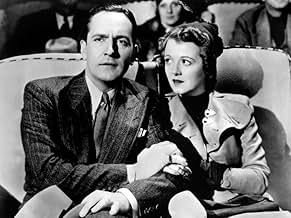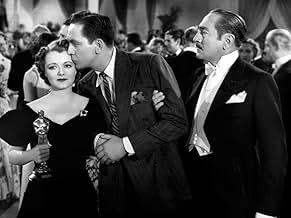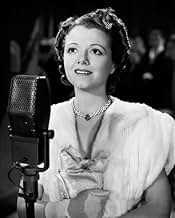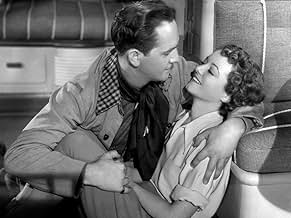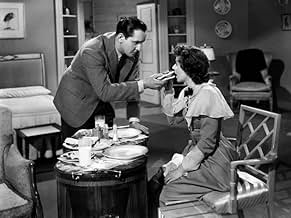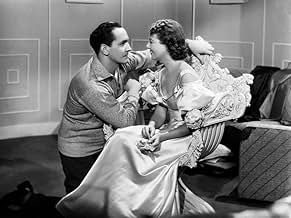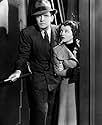VALUTAZIONE IMDb
7,3/10
11.562
LA TUA VALUTAZIONE
Una giovane donna arriva a Hollywood con sogni di celebrità, ma li raggiunge solo con l'aiuto di un noto attore, ora alcolizzato, il cui periodo di maggior fama è ormai alle sue spalle.Una giovane donna arriva a Hollywood con sogni di celebrità, ma li raggiunge solo con l'aiuto di un noto attore, ora alcolizzato, il cui periodo di maggior fama è ormai alle sue spalle.Una giovane donna arriva a Hollywood con sogni di celebrità, ma li raggiunge solo con l'aiuto di un noto attore, ora alcolizzato, il cui periodo di maggior fama è ormai alle sue spalle.
- Regia
- Sceneggiatura
- Star
- Vincitore di 1 Oscar
- 7 vittorie e 7 candidature totali
Guinn 'Big Boy' Williams
- Posture Coach
- (as Guinn Williams)
Jean Acker
- Woman at Preview
- (non citato nei titoli originali)
Eric Alden
- Niles' Assistant
- (non citato nei titoli originali)
Irving Bacon
- Station Agent
- (non citato nei titoli originali)
Jane Barnes
- Waitress #1
- (non citato nei titoli originali)
Vince Barnett
- Otto
- (non citato nei titoli originali)
Clara Blandick
- Aunt Mattie
- (non citato nei titoli originali)
Recensioni in evidenza
This early version of "A Star is Born" is well-performed by a good cast, and an interesting story. The basic idea is fairly simple, but filled with potential, and it is done skillfully.
Janet Gaynor and Frederic March work very well as a Hollywood couple whose careers are headed in different directions, with March's performance being especially good. The rest of the cast rounds out the picture nicely with good performances of their own. While the inside look at Hollywood is interesting in its own right, the heart of the story is the way that the couple's marriage and relationships are affected by her career taking off at the same time that his is crashing. It's the kind of story that only works with believable characters, careful writing, and convincing acting, and all of those are present here.
While overshadowed by the lavish 50's remake, this earlier version is still quite worthwhile in its own right.
Janet Gaynor and Frederic March work very well as a Hollywood couple whose careers are headed in different directions, with March's performance being especially good. The rest of the cast rounds out the picture nicely with good performances of their own. While the inside look at Hollywood is interesting in its own right, the heart of the story is the way that the couple's marriage and relationships are affected by her career taking off at the same time that his is crashing. It's the kind of story that only works with believable characters, careful writing, and convincing acting, and all of those are present here.
While overshadowed by the lavish 50's remake, this earlier version is still quite worthwhile in its own right.
Fredric March gave a magnificent performance, probably the best of his career, as Norman Maine, the actor whose career is in the descendant as that of his wife, Vikki Lester, is in the ascendant in this, the first 'official' version of "A Star is Born", (the 1932 film "What Price Hollywood" roughly told the same story). March displays just the right degree of brashness, of knowingness, and a combination of ego and a real actor's almost complete lack of ego. It's a miraculous piece of work.
As Lester, Janet Gaynor is touchingly blank but the star quality she is meant to display seems conspicuously absent; (in the 1954 musical remake Judy Garland was almost too much a star). It seems inconceivable that she could eclipse March on screen (even with his drinking). If Lester is a star and possibly a great actress Gaynor keeps the secret to herself.
The script for this version was partly written by Dorothy Parker and Alan Campbell and it shows. It's an acerbic and, at times, savage movie about the movies, quite cynical for a major studio picture of it's day. It is very well directed by William Wellman who draws first-rate performances from the supporting cast, in particular Lionel Stander as a heartless, slime-ball studio hack. This remains the best of the three versions to come thus far.
As Lester, Janet Gaynor is touchingly blank but the star quality she is meant to display seems conspicuously absent; (in the 1954 musical remake Judy Garland was almost too much a star). It seems inconceivable that she could eclipse March on screen (even with his drinking). If Lester is a star and possibly a great actress Gaynor keeps the secret to herself.
The script for this version was partly written by Dorothy Parker and Alan Campbell and it shows. It's an acerbic and, at times, savage movie about the movies, quite cynical for a major studio picture of it's day. It is very well directed by William Wellman who draws first-rate performances from the supporting cast, in particular Lionel Stander as a heartless, slime-ball studio hack. This remains the best of the three versions to come thus far.
Janet Gaynor plays Esther Blodgett beautifully, a girl who leaves for Hollywood with dreams of film magazines and the blessing of her granny. Once there she finds it tough-going until meeting Norman Maine (Fredric March) at a party. We've already seen Norman drunk at a theatre but here he charms Esther and actually gets her into the movies before marrying her and watching his own career crumble. March is excellent in this, and the look of the film is surprisingly modern with its lovely technicolor and gadgets (I particularly like the shower in the motor home Esther and Norman take on honeymoon). Esther's move to become star Vicki Lester, Oscar-winning actress, is unbelievable but as her real-life tragedy unfolds, compelling. And who can stay dry-eyed at the end? Remade with music and Judy Garland in 1954 (very well) but this first version is a jewel amongst other 30s classics.
This is perhaps my favorite movie from the thirties. The writing, the acting, the directing, the music are virtually perfect. It is a rare kind of movie. The dialogue is sharp, smart, witty, compassionate, mature and incredibly contemporary. It could have been written last week. It is not afraid to deal with real life: alcoholism, drunk driving, failure, success, suicide. The characters are real. The drama is firmly anchored in real life. The writers are obviously good people who feel and think deeply. This movie was blissfully free from the usual contrived plots. What a breath of fresh air! The music alone makes it worth HEARING again and again.
I loved the fact that the movie didn't try prove anything. It just tells a story in an esthetically satisfying manner. It is of the same high quality as "The Best Years Of Our Lives". I haven't seen subsequent versions, but they cannot possibly be as good.
This the the most wonderful homage Hollywood ever paid to itself, to all those ordinary folks who became stars, or who valiantly tried and failed, or whose goals were more modest, and who achieved fulfillment behind the scenes.
This is the Hollywood epic standing proud and tall, and it is impossible not to shed a tear of admiration and affection.
I loved the fact that the movie didn't try prove anything. It just tells a story in an esthetically satisfying manner. It is of the same high quality as "The Best Years Of Our Lives". I haven't seen subsequent versions, but they cannot possibly be as good.
This the the most wonderful homage Hollywood ever paid to itself, to all those ordinary folks who became stars, or who valiantly tried and failed, or whose goals were more modest, and who achieved fulfillment behind the scenes.
This is the Hollywood epic standing proud and tall, and it is impossible not to shed a tear of admiration and affection.
When you see this masterpiece, remember that more than 65 years have passed since it debuted on the big screen. How many contemporary films will dazzle and delight in 2065?
Sure, we have seen this story before, but this was the first incarnation. Sure all films are in color today, but notice the rich, full-rigged use of color here, only a decade after talkies began. Dialogue sound familiar, well many of the lines originated here (thanks Dorothy Parker).
First caught this in the movie theatre around 1975 as this David O. Selznick production had been out of circulation. Judy Garland's troubled but ultimately engrossing and hugely entertaining remake was already familiar to me. So how does a classic compare to its first version. To me, it is one of the 1930's masterworks.
How perfect to cast Janet Gaynor in the role, an Oscar winner herself at 20 --- that child-like voice unforgettable. Fredric March, like Gaynor already a star and early Oscar recipient, world weary and helpless. The art deco, lavish production, haunting music, and scene after scene of "behind the scenes Hollywood", well they sure worked for me. "Kitsch" an old friend labeled it, but to me, memorable.
I love watching this movie --- hope you enjoy it as well.
Sure, we have seen this story before, but this was the first incarnation. Sure all films are in color today, but notice the rich, full-rigged use of color here, only a decade after talkies began. Dialogue sound familiar, well many of the lines originated here (thanks Dorothy Parker).
First caught this in the movie theatre around 1975 as this David O. Selznick production had been out of circulation. Judy Garland's troubled but ultimately engrossing and hugely entertaining remake was already familiar to me. So how does a classic compare to its first version. To me, it is one of the 1930's masterworks.
How perfect to cast Janet Gaynor in the role, an Oscar winner herself at 20 --- that child-like voice unforgettable. Fredric March, like Gaynor already a star and early Oscar recipient, world weary and helpless. The art deco, lavish production, haunting music, and scene after scene of "behind the scenes Hollywood", well they sure worked for me. "Kitsch" an old friend labeled it, but to me, memorable.
I love watching this movie --- hope you enjoy it as well.
Lo sapevi?
- QuizThe first all-color film nominated for an Academy Award for Best Picture.
- BlooperThe Night Court Judge refers to the "commonwealth" of California, but California isn't one of the states with commonwealth status. The judge should have referred to the "state" instead.
- Citazioni
Grandmother Lettie: If you've got one drop of my blood in your veins, you won't let Mattie or any of her kind break your heart, you'll go right out there and break it yourself.
- Versioni alternativeAlso available in black and white
- ConnessioniEdited into What's Cookin' Doc? (1944)
- Colonne sonoreCalifornia, Here I Come
(1924) (uncredited)
Music by Joseph Meyer
(variations in the score as Esther arrives in Hollywood)
I più visti
Accedi per valutare e creare un elenco di titoli salvati per ottenere consigli personalizzati
Dettagli
- Data di uscita
- Paese di origine
- Lingua
- Celebre anche come
- Nace una estrella
- Luoghi delle riprese
- Aziende produttrici
- Vedi altri crediti dell’azienda su IMDbPro
Botteghino
- Budget
- 1.173.639 USD (previsto)
- Tempo di esecuzione
- 1h 51min(111 min)
- Proporzioni
- 1.37 : 1
Contribuisci a questa pagina
Suggerisci una modifica o aggiungi i contenuti mancanti


